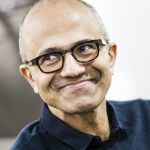Dr. Akinwumi A. Adesina is the President of the African Development Bank Group - the premier multilateral development financial institution in Africa. Established in 1964 to fight poverty and promote sustainable economic growth and social progress in Africa, the Bank’s strategy is focused on five development priorities (the ‘High 5s’): light up and power Africa, feed Africa, Industrialise Africa, integrate Africa, and improve the quality of life for the people of Africa. CEO Today had the pleasure to catch up with Dr. Adesina to hear about what he’s been up to since becoming the President of the Bank in 2015 and his big goals for its future.
Can you tell us about the early days of your career, after graduating from the University of Ife?
My father and grandfather were farmers and had to work as part- time labourers on other people’s farms. My father’s experience was that farming did not pay. It was through a benefactor that he made it out of the village. It was also through this golden opportunity that, with a tremendous amount of sacrifices, I received the bene t of a proper education.
My father wanted me to be a doctor after his experiences in farming, and he tried quite hard to get me to study medicine.
However, several universities kept passing me over for medicine, but saying they would admit me if I studied agriculture, so eventually, my father relented and allowed me to study agriculture. He said: “God must want you in agriculture.” Well he was right!
After graduating from the University of Ife, Nigeria with a First Class Honours degree in agricultural economics, I went on to obtain Masters and PhD degrees in agricultural economics at Purdue University in the USA, where I won the Outstanding PhD thesis award for that year (1988). I then returned to Africa, serving as Assistant Principal Economist of the International Crops Research Institute for the Semiarid Tropics, before becoming Principal Economist for the West Africa Rice Development Association and later as the Senior Economist for the International Institute for Tropical Agriculture.
I served as Associate Director and Regional Director for the Southern Africa Office at the Rockefeller Foundation, then became Vice President (Policy and Partnerships) of the Alliance for a Green Revolution in Africa (AGRA) in 2008, where I led some innovative finance initiatives that leveraged over $4 billion in bank finance commitments for Africa’s agriculture sector.
I worked with African Heads of State and Finance Ministers and the banking industry to leverage domestic bank finance for the agricultural sector. This was a big breakthrough, as banks did not traditionally lend much money to farmers.
What invaluable knowledge did you take from being Nigeria’s Minister of Agriculture and Rural Development between 2011 and 2015?
To succeed in any enterprise, you must be a visionary, bold, honest, disciplined and passionate. You must not bother about detractors. Just focus on the work and let the results speak for themselves. I learnt that entrenched interests must be tackled to deliver impactful results. I learnt that reforms and the speed of reforms matter. And nothing beats a relentless focus on results.
My mission was simple: turn agriculture away from a development activity into a business.
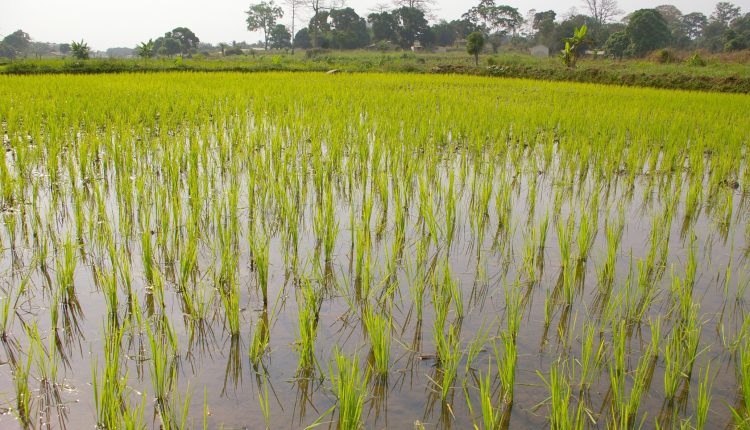
My goal was to put the farmers at the centre of all public policies. I led a bold effort that ended a 40-year-old government-driven procurement system that had been heavily corrupt. Tackling this monumental level of corruption required disruptive innovation! So, I turned to the power of mobile phones. Using the phones, we registered farmers and sent them digital vouchers directly, which they used to purchase farm inputs from the private sector. The failing public procurement system was dismantled within 90 days, and transparency, probity and accountability reigned.
Within four years, the electronic wallet system allowed over 15 million farmers (including 2.5 million women farmers) to purchase farm inputs directly from the private sector, instead of government, and this led to rapid expansion of mobile phone companies into rural areas. The percentage of farmers who received farm inputs rose to 94%, compared to 11% under the government procurement system. The impact was massive: food production rose by an additional 21 million metric tons, benefitting some 75 million people. There was joy everywhere for farmers. As one of them told me: “Our dignity was restored.”
I also helped design the Nigeria Incentive-Based Risk Sharing System for Agricultural Lending (NIRSAL) facility, to de- risk all commercial banks in the country to lend to the agriculture sector. We successfully set up a $350 million risk-sharing facility with the then Governor of the Central Bank of Nigeria (Sanusi Lamido, now the Emir of Kano) which helped to leverage $3.5 billion in lending towards the agriculture sector, with a repayment rate of 99%. Today, NIRSAL is a stand-alone non- bank financial institution. The model is being scaled up by the African Development Bank with the goal of reaching 30 countries with similar models.
I am a firm believer in private sector-led growth. As I look back, I am particularly pleased that my team and I inspired changes in perception about agriculture in Nigeria from that of subsistence and rural poverty to being a viable business undertaking, which successfully attracted $5.6 billion in private sector investment. We also led financing initiatives to support youth engagement in agriculture as well as small and medium-sized enterprises. Ultimately, under my leadership, Nigeria’s food production expanded by an additional 21 million metric tonnes.
I went straight from this role to being elected the President of the African Development Bank. It gave me a heightened determination to do all I could do eliminate poverty from the continent. Thanks to my Nigerian experience, I had more confidence and was even more prepared to be bold in seeking to achieve my objectives. I knew that the solution to poverty lies in modernising agriculture and creating jobs for youth and I was determined to be in a position where I could make this happen.
Your achievements vary from being named Forbes’ African Man of the Year for your reform of Nigerian agriculture, through to being awarded the 2017 World Food Prize. Can you tell us a bit about the biggest achievements in your career? What are the things that you are most proud of today?
It was such a huge honour to win the World Food Prize in 2017, which is widely known as the ‘Nobel Prize for Agriculture’. It gave me encouragement to continue to pursue my life mission to lift hundreds of millions of people out of poverty into wealth. I have dedicated my life to this mission. I will not rest until this is achieved.
I am very happy that my drive to turn agriculture into a business has taken hold all across Africa now. Africa is well on its way to driving agriculture as a business, to diversify the economy, create jobs and Industrialise through value addition. When I see that happening, I feel proud that Africa’s time has come!
Life is not just about accomplishments. For me, it’s all about family and loved ones. I am mostly proud of my dear wife, Grace. Without her, I wouldn’t be who I am today. And I am enormously proud of my two sons, Rotimi and Segun. They give me balance in life.
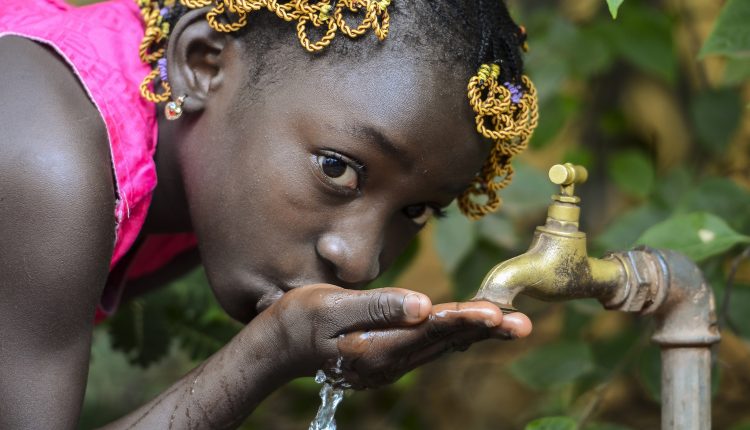
What are some of the changes that you’ve implemented since becoming the 8th President of AFDB in 2015?
I am impatient for Africa’s development. I set out with a very clear goal: reposition the Bank’s role to accelerate the transformation of Africa. The Bank launched the ‘High 5s’ strategy (light up and power Africa, feed Africa, Industrialise Africa, integrate Africa, and improve the quality of life for the people of Africa) in 2015. We set out a goal to drive for universal access to electricity in Africa, get Africa to feed itself and unlock its agriculture potential to generate wealth, help African countries to better integrate their economies, and help Africa to create jobs.
I am delighted these High 5s are already influencing Africa’s development trajectory. According to analysis by the United Nations, achieving the High 5s will contribute to achieving 90% of the Sustainable
Development Goals and of Agenda 2063. In this way, they are accelerators of Africa’s economic development.
The Bank also adopted a new business delivery model. I wanted us to be much closer to our clients in different regions of Africa, to achieve greater development impacts. Thus, we now have five regional business delivery offices, for West, East, Central, North and Southern Africa. That is helping to accelerate the development footprint of the Bank more broadly across the continent.
We have introduced Bank-wide performance contracts to drive a culture of accountability for results. Our shareholders and stakeholders, rightly, keep us on our toes. They ask us for reforms. And reforms are being achieved. The shareholders want greater value for money and that’s what we have been doing. They want us to change the culture in the Bank from one driven by entitlement to one driven by performance, and we are listening to them. No organisation can excel in performance without accountability for results. And there is a need for greater alignment, performance and accountability for results. Traditional business is no longer allowed.
We have also changed the pricing of our loan products to ensure we are more competitive with other multilateral and international finance institutions, while strengthening the financial position of the Bank. We are focusing more sharply on greater private sector lending operations to help leverage the capital markets for Africa’s development.
We will get our work done only when we meet Africa’s expectations. Every manager of a football team wants to win and he must ensure that his players are disciplined and committed to winning. We intend to score a lot more development goals for Africa.
How has your appointment to President of AFDB affected its business since 2015?
I am the first President of the Bank with an agricultural background and qualifications. So, it’s no surprise that I have significantly increased the Bank’s priority for agricultural programs and projects. The Bank will invest $24 billion in agriculture and agribusiness over the next ten years. It’s the first step towards the economic transformation of Africa. No country has ever developed without its agriculture first having modernized and incorporated manufacturing and processing. Africa’s next millionaires and billionaires will come from agriculture, and we must be the Bank that helps to make that happen.
Overall, the Bank has become a much more professional and exciting place to work. We are much more conscious of the need for a very high quality of delivery and the significant impact of our staff, projects and programs. We are a sharper, leaner and better organization now and this is reflected in our achievements and numbers. We have been breaking records of delivery, disbursement and impact since I took over, and I mean to keep it that way.
I have a great team and they are the ones that helped deliver the Bank’s record-breaking achievements in the past year. We saw African Development Bank’s highest annual disbursement ever in its history, at $7.67 billion. We launched the organization’s largest bond transaction, with a $2.5 billion 3-year global benchmark, which was followed by its largest ever 5-year global benchmark for $2 billion.
The Bank’s financial strength continues to be reinforced, and in 2017, we maintained its AAA rating, with stable outlook, by all four global rating agencies. The Bank’s AAA stable outlook rating is underpinned by sound financial and risk management policies, excellent liquidity and strong shareholder support.
The African Development Bank continues to grow its income solidly, reversing the declining income of the Bank when I took over. The net operating income of the Bank Group, which had declined from $589 million in 2014 to $493 million in 2015, has turned around rapidly. The Bank Group’s net operating income rose to $557 million in 2016, and shot up to $781 million in 2017, an increase of about 59% from 2015.
The Bank is also mobilizing more resources for Africa. In 2017, we mobilized $9.73 billion from the capital markets for African countries.
Last year, the Bank also helped leverage $6 billion for the landmark Japan-Africa Energy Financing Facility. This will help accelerate efforts to light up and power Africa.
Most importantly, the African Development Bank has achieved great success with regard to renewable energy. When I started as President two years ago, the share of renewable energy in our total power portfolio was just 14%. However, we increased that to 74% in 2016 and in 2017, we achieved a record-breaking 100% of our new lending in renewable energy. With access to more funding, we hope to provide electricity to an unprecedented 29.3 million African people between 2018 and 2020.
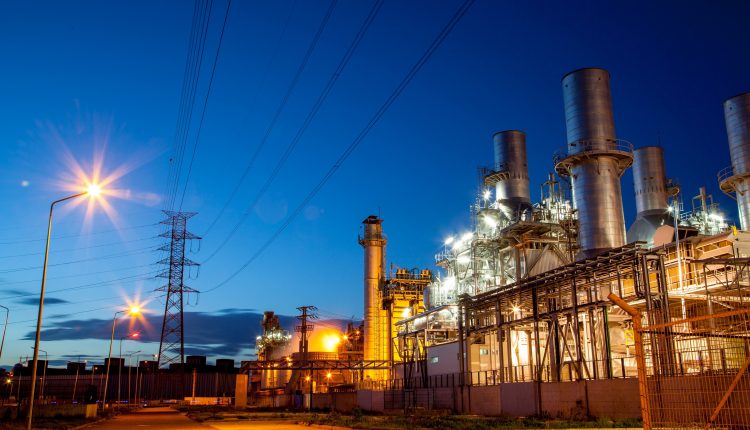
What did this appointment mean to you?
There were a number of reasons why I wanted to lead the Bank. First, it is the only multilateral development bank devoted solely to Africa’s development. Its strategies and programmes are closely aligned with the priorities of the regional member countries.
It is also a strong voice for Africa on the international stage. It is Africa’s most trusted institution. The Bank has the largest concentration of African staff of any development institution and profound ties to all 54 African countries. Our staff members understand the African context and are increasingly located in African capitals and regional centers, close to our clients.
Our team members have also built up a deep appreciation of national policy challenges and policy-making processes, which makes their policy advice tailored and relevant to each national context. Additionally, the African Development Bank is the only large multilateral development bank operating on the continent whose policy-making body, the Board of Directors, resides in Africa where the development challenges are.
What’s next? What’s going to keep driving you?
I want to see Africa develop. Donor countries are increasingly more concerned about development issues at home. So, our continent needs to depend less on aid and focus more on investments. Africa is not a poor continent; it just has lots of poor people. That is what has to change, and rapidly too. We need to leverage massive amounts of capital from the private sector to accelerate growth and development. The next big focus will be on helping African countries to mobilize domestic resources to drive a faster pace of growth and development. That is why the African Development Bank has launched the Africa Investment Forum, which will kick off 7-9 November 2018 in Johannesburg. Our goal is simple: help to leverage the global pension funds, sovereign wealth funds and insurance funds to invest in Africa. There is $120 trillion globally in assets under management by institutional investors and commercial banks. All Africa needs is to leverage is just 1% of this annually, and it will close its infrastructure finance gaps and boost investments in private sector and industrialisation.
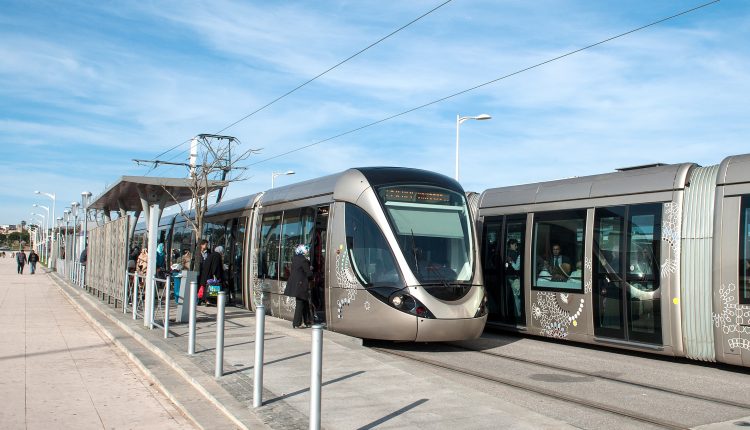
The next few years will be critical. We need bold action to close infrastructure gaps, transform agriculture and create the conditions for the private sector to flourish. We need to create more jobs and livelihood opportunities for young Africans, including through safe and regular regional labour migration, to end the migration and humanitarian tragedy on the Mediterranean.
In recent years, the Bank has faced a sharp rise in demand for its support. We have responded by expanding our lending and non-lending operations and using our resources more innovatively for African economic transformation via the High 5s.
However, we are pushing the limits of what we can achieve with our current resources. The Bank needs a capital increase to boost its resources to do more for African countries.
I want the Bank to help African countries create 25 million quality jobs for the youth in the next ten years and turn Africa’s demographic growth into an economic dividend. I cannot stand watching young Africans on rickety boats on the Mediterranean Sea. The future of Africa’s youth is not in Europe. It lies in Africa – a continent that is growing fast and is able to create jobs for millions of young people. That keeps me awake. There is so much to do and Africa can no longer wait.
My father, Roland Adesina, who was a great inspiration for me, passed away recently. He once told me: “Do all you can to give hope to the poor.” This will be my guiding light as we take on these next challenges. I am confident that we will succeed.




